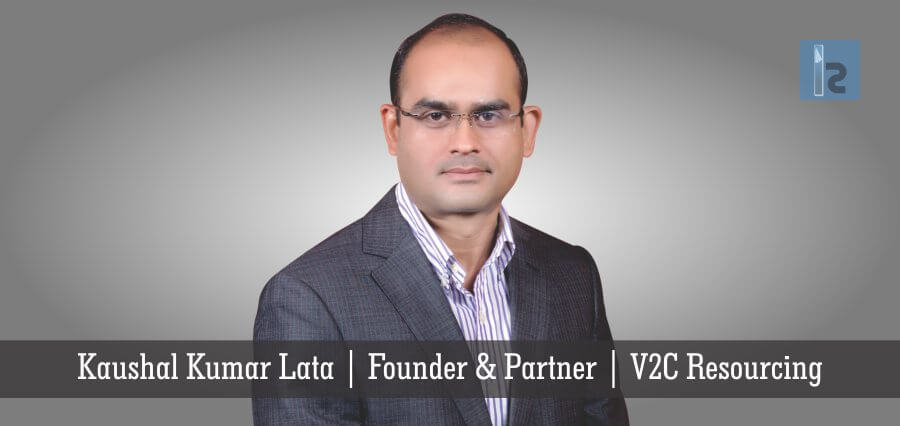Existing Model:
Very often we come across many niche small & mid-sized organizations, having fantastic products or services, but could not scale up due to lack of Finance strategy and implementation.
Generally, these organizations are driven by the promoter (let’s call him CEO) and responsibility of taking financials decisions lies with him/her. However, in most of the cases, the CEO is not from Finance background. Typically, in such structure, there will be a junior team to take care of day to day accounting and an external Chartered Accountant who will take care of periodic compliances.
Problem faced:
Normally the CEOs are people from Marketing and PR background. Their main interest is to win contracts, purchase, sales and production. When the CEO takes up additional responsibility of a critical field like Finance, it costs overall productivity of the organisation.
Following are some of the common issues faced in such organizations:
- Incompetent accounting processes, resulting in no real knowledge of the financial health of the organisation
- Cash flow positions normally remains in the heads of the promoters. Generally, MSME organizations have a culture of not maintaining the cash flow prudently. Thus, there is no clear visibility of the cash flow situation in near future
- Lack of control exercised by the Finance to ensure no leakage of revenue
- Inadequate funding or high cost of finance
- No clear business plan for the sustainability and growth of the organization
How Virtual CFO can help:
While in Europe, the banks and investors give importance to the structure of the organisation, whereas in India, it is challenging to aligned this to the CEOs of MSME. It is the CFO who gives structure to the organisation, on which CEO can build the future with 3-5 years visibility.
An experienced full time CFO may be very costly for the MSME organization but a virtual CFO or shared CFO can be of great help for them. Idea is to keep it extremely affordable, at the same time, it should add value to the organisation.
The virtual CFO will be always available for the organization whenever needed. At the same time, since he/she will be on board of multiple organizations hence his costing will be shared amongst them all. This model can be very efficient and cost effective for MSME companies.
Why it is not yet very popular yet:
Often CEOs look for 3 qualities in CFO, i.e. qualification, experience and trustworthiness. Generally, all these 3 qualities are not available together or if available, the resource will be very costly for MSMEs. This ends up CEO taking additional responsibilities of Finance, resulting in overall lower productivity.
Generally, the business owners know they have to call a HR Consultant for hiring or a practicing Chartered Accountant for accounting and tax compliances. The virtual CFO concept is relatively new and there are very few quality players in this field hence it is not popular yet.
Now a days, many practicing Chartered Accountants are venturing into this field but most of them have neither gained the experience of the real corporate world nor are they committed for the growth of organisation. These practicing Chartered Accountants are still committed to cater to their multiple clients for their accounting and periodic compliance work hence they are utterly unsuccessful as Virtual CFO.
Prerequisites for a successful Virtual CFO:
Along with Sales, Customers and Product, the function of Finance is the forth fundamental pillar for the organisation on which great business is build. Keeping this in mind, the role of virtual CFO is very important for the success of the organisation.
Following are some of the prerequisites for an effective Virtual CFO of mid-sized organization:
- Exposure of best practices of great organizations: Virtual CFO must have long working experience with world class organizations so that he can understand and replicate their best practices to our mid-sized clients, who otherwise are not exposed to it.
- Stress on the importance of organizational structure with roles and responsibilities well defined. This helps to reduce the burden from CEOs on his own performance. He should be able to set the measurable KPIs and periodic review of the performance vis-à-vis the KPIs. This gives visibility of the current status of the organisation as compared to CEO’s goals and vision.
- Set up real time MIS for top management on the business performance
- Weekly projection of Cash flow for upcoming months
- Setting up Governance Framework to ensures that there are no unpleasant surprises for the management
- Drafting and implementing policies and procedures along with internal controls over processes.
- Hedging the risks: Risks are integral part of the growth of the business. The Virtual CFO should be able to help CEO taking calculative risks and advise on how to hedge it.
- Budgeting and long-term planning: this is useful to measure the performance of the business, set goals and aligning employees goals towards overall organizational goals
- Efficient use of cheaper funds available in the finance market. This helps availability of the funds for fueling the growth of the organisation
- Focus on good control environment: Virtual CFO should have a strong internal audit back-ground to enable him set up good preventive control practices in the organisation
About the Author:
Kaushal Kumar Lata is a qualified Chartered Accountant with approximately 20 years of working experience. Before starting the Virtual CFO practice, he has worked with organizations like Vodafone, PwC, Tyco Electronics, Britannia and Bosch. During this tenure he has handled almost all verticals of Finance and Accounts department at India and International level. As Virtual CFO, he is providing services to some leading names from specialty chemical manufacturer, digital marketing, hotels inventory aggregators, online games creators and polymer manufacturers companies. His articles are published in other trade magazines as well.


